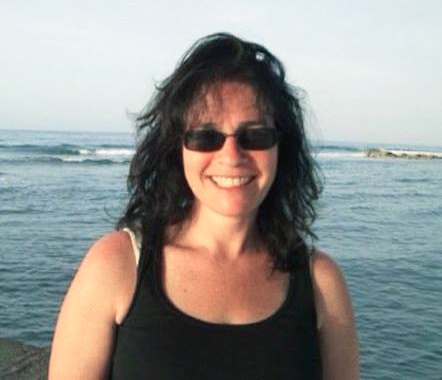
Reflections on My Time at Hebrew University
By Lorraine Fairbloom, Toronto

I was fortunate to have to spent a summer in Israel, studying at the Mount Scopus campus of Hebrew U in 1984. A high school friend, Lisa Scherer, told me about CFHU’s connection to summer programs at Hebrew U, and I immediately loved the idea of taking a summer course, the ability to get a half credit from U of T and the idea of living in residence at the Mount Scopus campus! I had only a few friends away at university, and while I loved being a university student in the city, and hanging out with my friends in Toronto, I felt I was missing out on the experience of being away at school.
This option sounded like a perfect remedy. Lisa and I did some research and decided to plan a two-month trip to Israel and Italy. This was the BEST decision. I registered for a political science course, “The Arab/Israeli Conflict,” taught by a very dynamic and knowledgeable man, born and raised in Montreal who had made aliyah. He was well-versed in the politics of Israel and the major issue of giving up territory in the West Bank and Gaza versus building settlements there and keeping a Jewish/Israel presence. Interesting how this remains a hot topic 35 years later!
A fascinating component of the course were the informative field trips. One was to a Palestinian town to meet with the local Town Council, including sitting in on a council meeting and speaking with Council members. The other was going to (if I remember correctly) the Lebanese and Syrian borders.
I truly loved the camaraderie that formed among the students in our program. There were at least 30 of us, ranging in age from 17 to 25. During the week, we spent days in class and studying at the library or in the cafes, going into town often and taking advantage of social get-togethers on campus. These included pub nights, parties, guest speakers and “movies under the stars”. On weekends, we created a routine of going away as smaller groups and exploring other cities, such as Tel Aviv, Netanya, and Haifa.
I loved each and every moment, so much so I called home and begged my parents to let me stay for the next academic year. While I was able to convince them, I was told by U of T that I couldn’t complete my final year abroad. Since I wasn’t yet sure of whether I was completing a 3- or 4-year undergrad degree, I chose to return to Toronto. Over the next several months, I missed Hebrew U and living in Israel. I immediately got busy planning trips to New York to visit friends I had met at Hebrew U and inviting them to come to Toronto. The bonding and relationships built at Hebrew U has left me with lifelong friends I’m happy to say I’m still in touch with 35 years later!
Studying at Hebrew U had an incredibly positive influence on my life. It offered me the experience of living abroad, going away to school and being independent and self-reliant, in a very different way than living at home while going to University in Toronto. The knowledge I gained about Arab and Israeli politics and schools of thought was enlightening, especially as a psychology student who eventually pursued a career in Mental Health Occupational Therapy. It also offered an opportunity to experience the culture and lifestyle of Israel from a student’s perspective. I had the chance to interact with people from across the globe. While the students in our course were primarily from the USA and Canada, many living in residence were from Europe, South America, Mexico and Africa, in addition to many Israelis. I have a true love of Israel, and hope my own children will have the opportunity to attend Hebrew U, either for a year abroad, or for a summer, like I did.
My heart smiles whenever I reminisce with people about my experiences, and when I see someone wearing a Hebrew University T-shirt or sweatshirt. I still have my Hebrew U sweatshirt purchased while I was there, and love that my teenage daughter now shares it with me.
Lorraine is an occupational therapist at Sunnybrook Health Sciences Centre and Status Appt Lecturer, Dept. of Occupational Science and Occupational Therapy at the University of Toronto